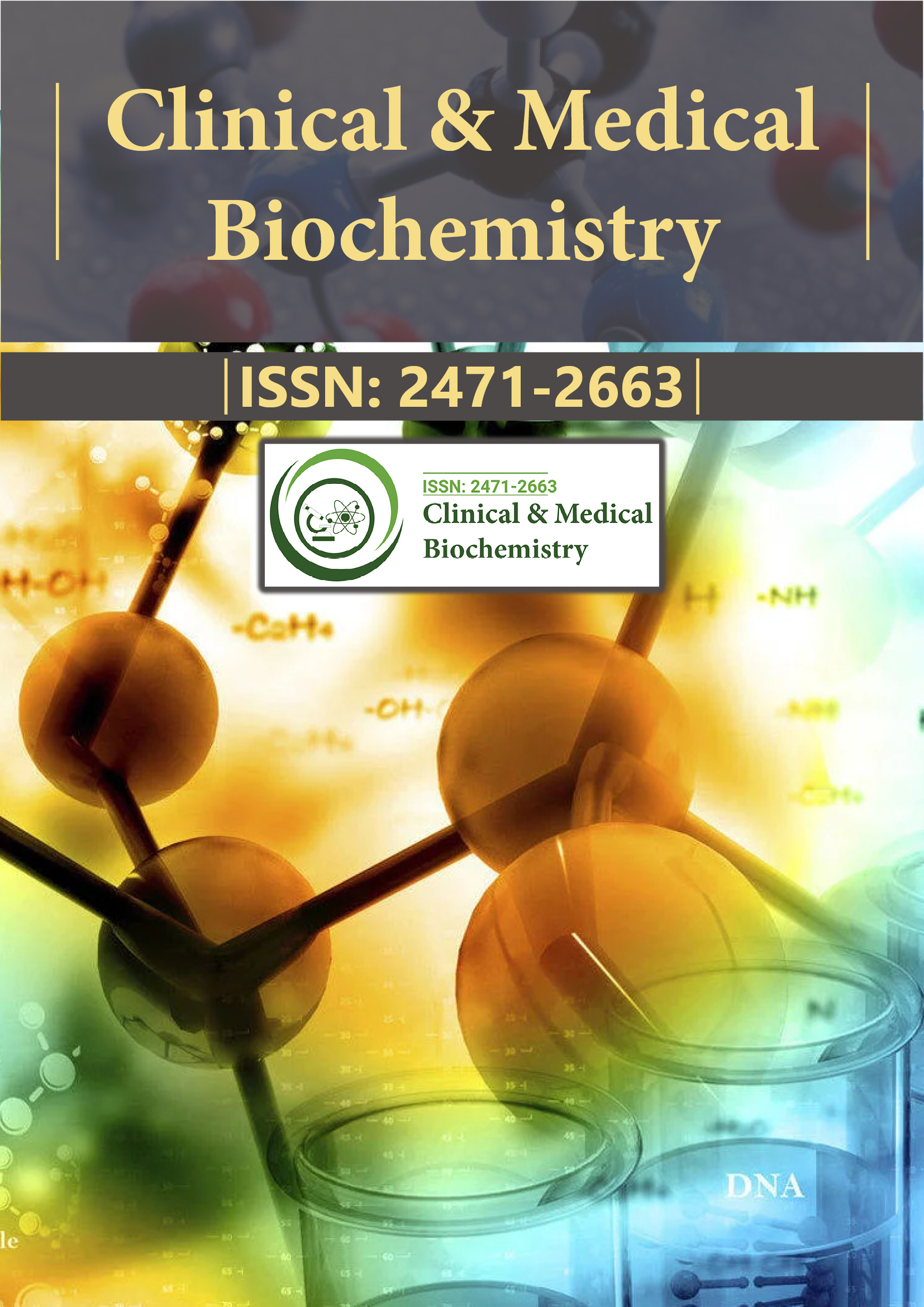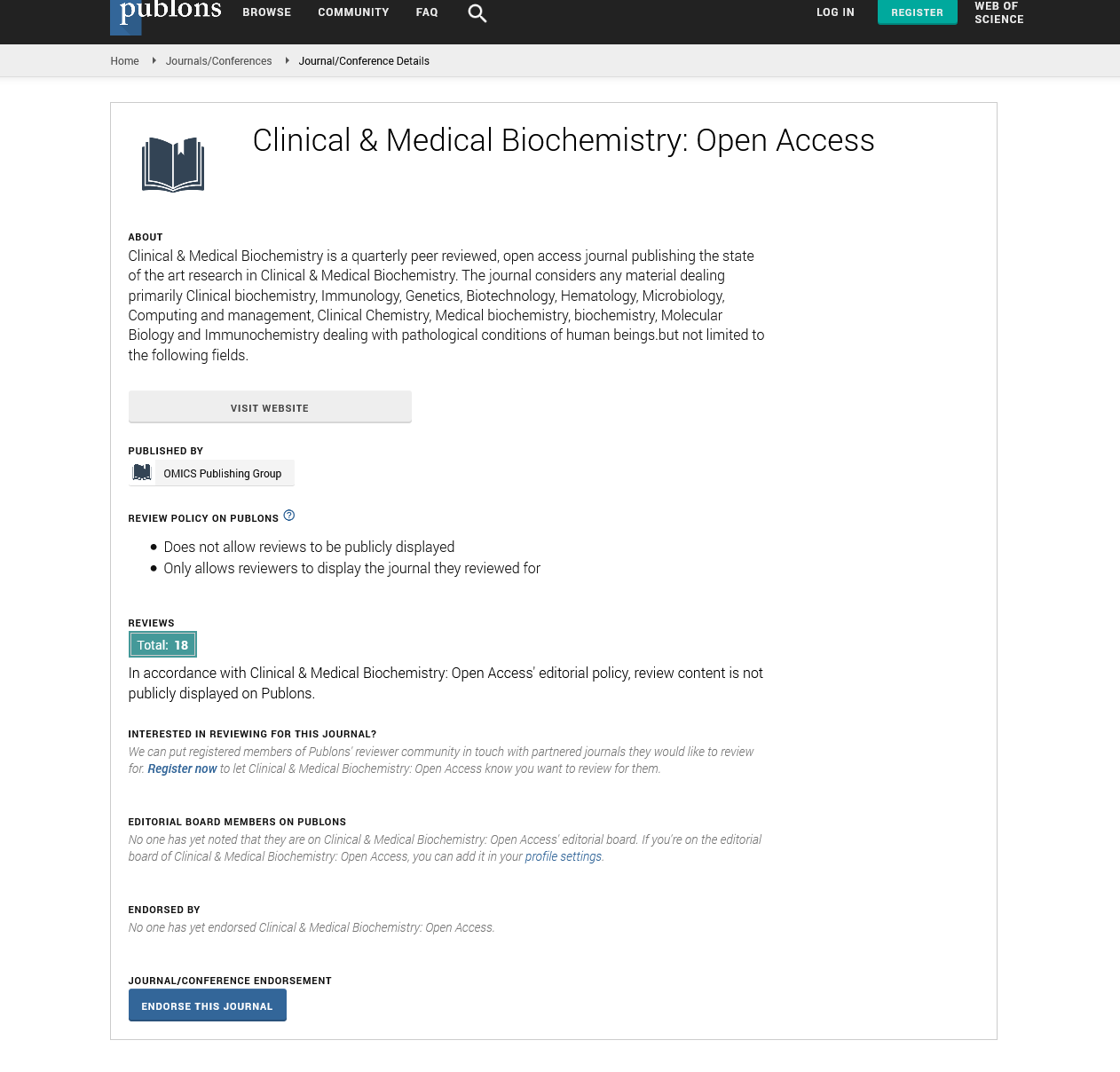Indexed In
- RefSeek
- Directory of Research Journal Indexing (DRJI)
- Hamdard University
- EBSCO A-Z
- OCLC- WorldCat
- Scholarsteer
- Publons
- Euro Pub
- Google Scholar
Useful Links
Share This Page
Journal Flyer

Open Access Journals
- Agri and Aquaculture
- Biochemistry
- Bioinformatics & Systems Biology
- Business & Management
- Chemistry
- Clinical Sciences
- Engineering
- Food & Nutrition
- General Science
- Genetics & Molecular Biology
- Immunology & Microbiology
- Medical Sciences
- Neuroscience & Psychology
- Nursing & Health Care
- Pharmaceutical Sciences
Opinion - (2023) Volume 9, Issue 4
The Role of Targeting Exosome-Mediated Lipid Metabolism as a Diagnostic Tool in Cancer
Franklin Turvey*Received: 03-Jul-2023, Manuscript No. CMBO-23-22622; Editor assigned: 06-Jul-2023, Pre QC No. CMBO-23-22622 (PQ); Reviewed: 20-Jul-2023, QC No. CMBO-23-22622; Revised: 27-Jul-2023, Manuscript No. CMBO-23-22622 (R); Published: 03-Aug-2023, DOI: 10.35841/2471-2663.23.9.177
Description
Cancer, a complex and heterogeneous group of diseases, is characterized by uncontrolled cell growth and proliferation. The intricate interplay between genetic mutations, epigenetic alterations, and the tumor microenvironment contributes to tumorigenesis and cancer progression. In recent years, exosomes, small extracellular vesicles secreted by cells, have emerged as key players in intercellular communication and have been implicated in various aspects of cancer biology.
Among their multifaceted roles, exosomes are now recognized for their ability to modulate lipid metabolism, a fundamental cellular process that influences energy homeostasis, membrane integrity, and signaling pathways. Lipid metabolism plays a vital role in normal cellular physiology, supporting essential functions such as energy production, membrane structure, and cell signaling. Dysregulation of lipid metabolism is a hallmark of cancer cells and contributes to their survival, proliferation, and adaptation to the tumor microenvironment.
Emerging evidence suggests that exosomes, small vesicles ranging from 30 nm to 150 nm in diameter, contribute to the orchestration of lipid metabolism in both normal and cancer cells. Exosomes contain bioactive molecules, including lipids, proteins, and nucleic acids, that can influence recipient cells and reshape their metabolic landscape. Understanding the role of exosome-mediated lipid metabolism in cancer provides novel insights into the molecular mechanisms underlying tumorigenesis and cancer progression.
Exosomes originate from the endosomal system and are released into the extracellular space upon fusion of Multivesicular Bodies (MVBs) with the plasma membrane. During their biogenesis, exosomes selectively incorporate various molecules, including lipids, proteins, and nucleic acids, which are then shuttled to recipient cells. Exosome cargo composition is influenced by cellular status, microenvironmental cues, and pathological conditions such as cancer.
The diverse array of lipids within exosomes, including phospholipids, cholesterol, and bioactive lipids, has been implicated in intercellular communication and lipid metabolism regulation. Cancer cells exhibit altered lipid metabolism to sustain their high energy demands and rapid growth. Exosomes contribute to this metabolic reprogramming by delivering lipids to recipient cells. Additionally, exosomal lipid transfer can impact the lipid composition of recipient cells' membranes, influencing their biophysical properties and signaling capabilities. Lipids serve as signaling molecules that regulate a plethora of cellular processes, including proliferation, differentiation, and apoptosis.
Exosomes contribute to lipid signaling by transporting bioactive lipids, such as ceramides and sphingolipids, to recipient cells. These lipids can modulate signaling pathways involved in cancer progression, such as the Phosphoinositide 3 Kinase-Ak Strain Transforming (PI3K-AKT) and Mitogen-Activated Protein Kinase (MAPK) pathways. Exosome-mediated lipid signaling contributes to the establishment of a pro-tumorigenic microenvironment and supports cancer cell survival and growth. Exosomes have been implicated in reshaping lipid metabolism in cancer cells.
For instance, exosomes derived from cancer-associated fibroblasts can transfer lipids that fuel fatty acid synthesis in recipient cancer cells. This reprogramming of lipid metabolism promotes cancer cell proliferation and survival. Moreover, exosomes can alter the expression of lipid-related enzymes and transporters in recipient cells, further influencing lipid homeostasis. The role of exosome-mediated lipid metabolism in cancer has significant clinical implications. Targeting exosomemediated lipid transfer could offer innovative therapeutic strategies for cancer treatment. Strategies include inhibiting the biogenesis or secretion of exosomes, blocking lipid transport by exosomes, or modulating lipid-related signaling pathways in recipient cells. Additionally, the lipid composition of exosomes could serve as a diagnostic tool for cancer detection and prognosis.
Conclusion
Exosome-regulated lipid metabolism is a intriguing area of cancer biology with profound implications for tumorigenesis and cancer progression. The interplay between exosomes and lipid metabolism influences cellular behaviors that are central to cancer development, including proliferation, survival, and adaptation to the tumor microenvironment. Targeting exosomemediated lipid metabolism has the potential of improving cancer treatment strategies and enhancing our understanding of the complex molecular landscape of cancer.
Citation: Turvey F (2023) The Role of Targeting Exosome-Mediated Lipid Metabolism as a Diagnostic Tool in Cancer. Clin Med Bio Chem. 9:177.
Copyright: © 2023 Turvey F. This is an open-access article distributed under the terms of the Creative Commons Attribution License, which permits unrestricted use, distribution, and reproduction in any medium, provided the original author and source are credited.

